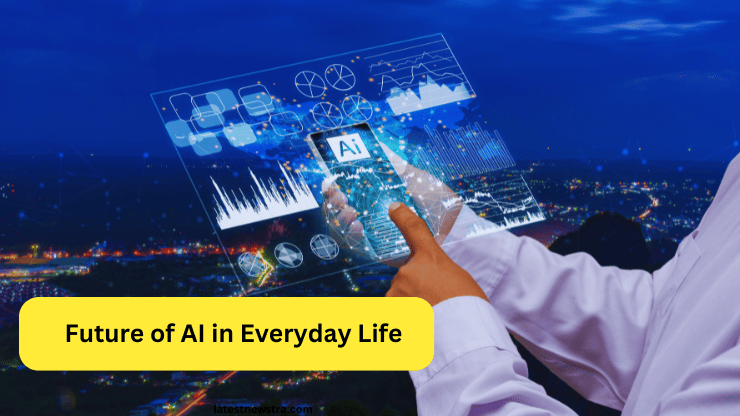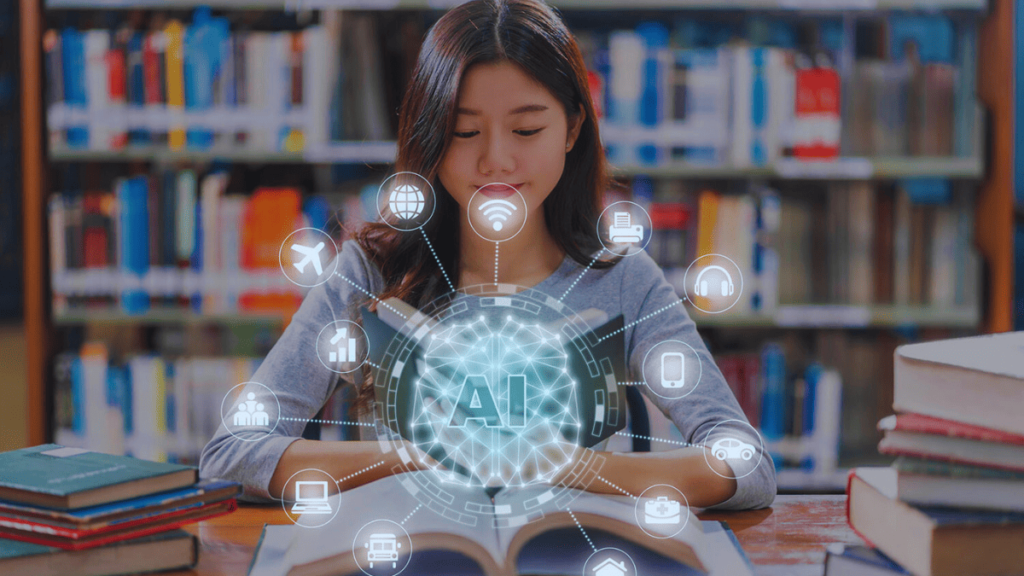Introduction to Artificial Intelligence
Artificial intelligence (AI) is no longer a concept confined to science fiction; it has become an integral part of modern society. This Artificial Intelligence Essay explores the vast potential of AI in shaping everyday life, revolutionizing industries, and solving global challenges. From assisting in daily tasks to driving technological innovation, AI continues to redefine how we live and work.

Understanding AI begins with recognizing its role as a simulation of human intelligence in machines. Its applications span across industries, including healthcare, education, and communication, proving that AI is here to stay.
The Growing Presence of AI in Everyday Life
AI in Healthcare
Healthcare systems are rapidly advancing with AI-driven technologies. This Artificial Intelligence Essay highlights AI’s ability to predict diseases, suggest personalized treatments, and even perform robotic surgeries. For example, AI-powered diagnostic tools help detect conditions like cancer in their early stages, saving lives.
AI in Communication
Virtual assistants and chatbots have streamlined communication processes. With AI, tools like language translators and automated email generators enhance efficiency, breaking down language barriers and improving connectivity worldwide.
AI in Education

In education, AI personalizes learning experiences by tailoring content to individual students’ needs. Adaptive learning platforms and AI tutors ensure a deeper understanding of subjects, making education more accessible for everyone.
AI in Smart Homes
Smart home technologies powered by AI, such as voice-controlled devices and automated systems, bring unparalleled convenience. Smart assistants like Alexa and Google Assistant manage schedules, control devices, and even entertain users, showcasing AI’s potential to transform daily life.
Future of AI in Business and Industry
Automation and Efficiency

This Artificial Intelligence Essay emphasizes how AI is revolutionizing workplaces through automation. From data analysis to managing repetitive tasks, AI reduces costs while increasing productivity.
Customer-Centric Innovations
AI allows businesses to understand customer preferences better and deliver personalized experiences. Chatbots, recommendation systems, and sentiment analysis are just a few tools businesses use to improve customer satisfaction.
Ethical Challenges of AI
Bias and Fairness
AI systems often reflect the biases in their training data. This Artificial Intelligence Essay stresses the importance of addressing algorithmic bias to ensure fairness and inclusivity.
Privacy Concerns
AI depends significantly on data, which brings up concerns about privacy and data security Ensuring transparency and accountability in AI operations is essential to building public trust.
Job Displacement
While AI creates new opportunities, it also disrupts traditional job roles. Preparing the workforce through reskilling programs can mitigate the adverse effects of this transformation.
How AI Shapes the Future
Sustainability and Energy
AI-driven technologies contribute to sustainability by optimizing energy use and predicting environmental changes. Smart grids and predictive models are just a few examples of AI’s role in combating climate change.
Space Exploration
AI is a cornerstone of modern space exploration, helping scientists analyze vast datasets and navigate complex missions. This Artificial Intelligence Essay highlights AI’s role in understanding the cosmos and paving the way for interplanetary travel.
Public Services
AI improves governance by streamlining public services and enhancing decision-making processes. It reduces inefficiencies and ensures better resource allocation, benefiting society as a whole.
Adapting to an AI-Driven World
The future demands that individuals and organizations embrace AI responsibly. This includes learning AI skills, participating in ethical AI development, and advocating for policies that ensure AI benefits all of humanity.
Conclusion
As explored in this Artificial Intelligence Essay, AI is transforming how we live, work, and interact with the world. Its influence spans industries, improves daily life, and offers solutions to global challenges. By addressing ethical concerns and embracing innovation, we can unlock AI’s full potential and create a smarter, more inclusive future.
- Can ChatGPT 3.5 Read Images? Everything You Need to Know
- OpenAI Releases Sora: A Revolutionary AI Video-Generation Tool (December 2024 Update)
- Can ChatGPT Create Documents? Exploring Its Features and Benefits for Efficient Document Creation
- OpenAI Wants to Pair Online Courses with Chatbots: A Revolution in Learning
- Using AI to Write a Book: A Human-Friendly Guide to Self-Publishing Success
What is the significance of artificial intelligence?
AI is transforming industries and daily life by improving efficiency, automating tasks, and solving complex problems.
How does AI improve healthcare?
AI enhances healthcare by enabling early disease detection, personalized treatments, and advanced robotic surgeries.
What are the challenges of implementing AI?
Key challenges include algorithmic bias, data privacy concerns, and the potential displacement of jobs.
Can AI replace human creativity?
While AI can mimic certain creative tasks, it cannot fully replicate human imagination and emotional depth.

Put out of his historical homeland I sure nothing to take